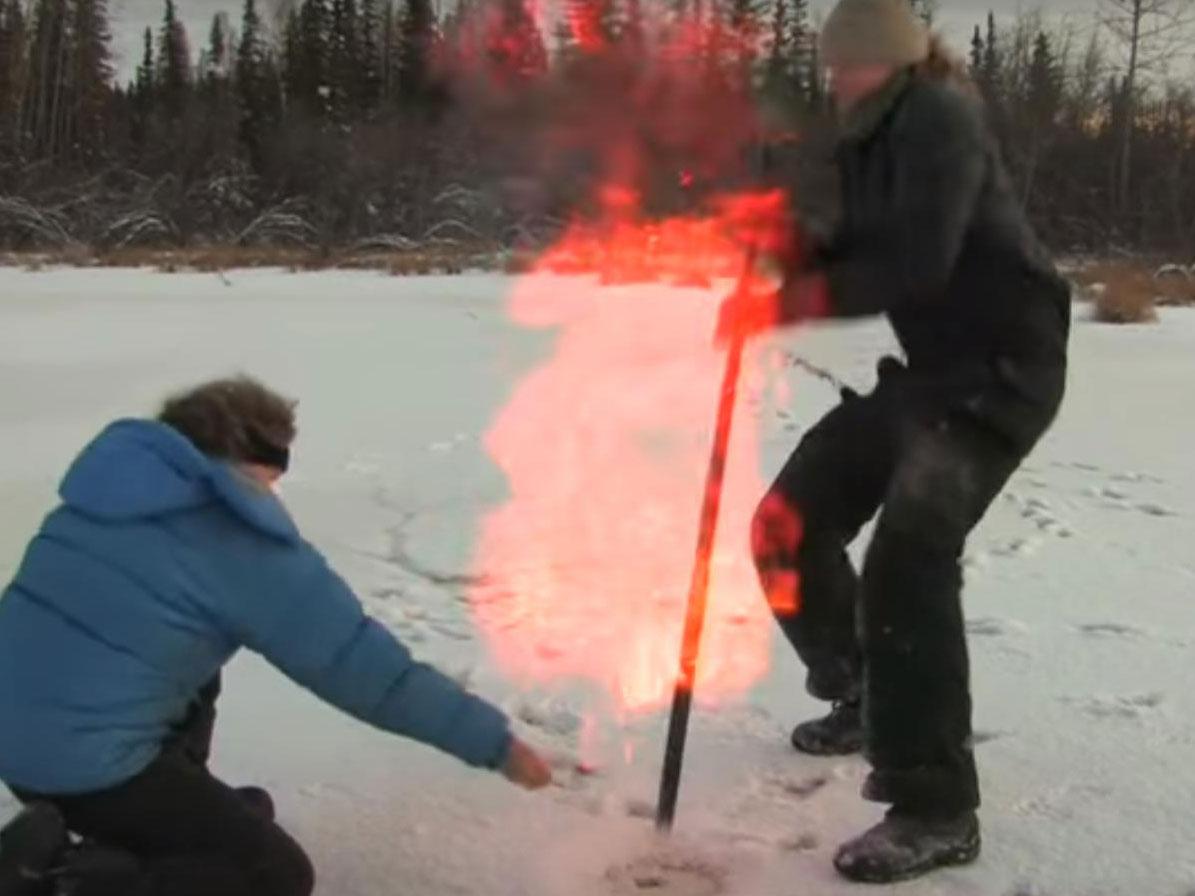Thawing permafrost poses even greater global warming threat than previously thought, suggests study
As the world warms, methane trapped underneath the frozen tundra could be released, increasing the rate of warming in a vicious circle

Your support helps us to tell the story
From reproductive rights to climate change to Big Tech, The Independent is on the ground when the story is developing. Whether it's investigating the financials of Elon Musk's pro-Trump PAC or producing our latest documentary, 'The A Word', which shines a light on the American women fighting for reproductive rights, we know how important it is to parse out the facts from the messaging.
At such a critical moment in US history, we need reporters on the ground. Your donation allows us to keep sending journalists to speak to both sides of the story.
The Independent is trusted by Americans across the entire political spectrum. And unlike many other quality news outlets, we choose not to lock Americans out of our reporting and analysis with paywalls. We believe quality journalism should be available to everyone, paid for by those who can afford it.
Your support makes all the difference.Runaway global warming is, without a doubt, a nightmare scenario for humanity.
As the temperature rises, it has knock-on effects that drive the mercury higher still in a vicious circle that the likes of Professor Stephen Hawking have warned could turn the Earth into a planet like Venus, where it’s a balmy 250 degrees Celsius and the rain is made of sulphuric acid.
One of the most feared of these feedback loops is the vast amount of organic material currently trapped in permafrost, which would release methane and other greenhouse gases in large amounts given the right conditions.
And now a team of researchers has discovered another significant source of emissions that would result from the thawing of the tundra. For the frozen ground acts as a cap on much more ancient gas deposits, preventing them from escaping into the atmosphere.
These seeps were known about, but just how important they would be was poorly understood.
The new study, of 10,000 square kilometres of the Mackenzie Delta in Canada, found that the seeps there were responsible for 17 per cent of the total emissions from the land even though they were only found in about one per cent of the area, according to a paper in the journal Scientific Reports.
One of the researchers, Professor Torsten Sachs told The Independent: “We were a bit surprised … we saw these very strong emissions. It means a very tiny fraction of the area produces quite a big share of the estimated annual emissions.
“And that tells us maybe we should not just focus on biogenic methane production in the upper lawyers of the permafrost, but pay a bit more attention to this potential effect.
“If we punch holes in the ‘lid’ [created by the permafrost], the stuff underneath may find its way up.”
Professor Sachs, of the German Research Centre for Geosciences in Potsdam, said the area they studied had been “discontinuous” permafrost for a long time and so probably had had such seeps well before humans began to notice global warming.
But the thawing of permafrost in places like the coastal plains of North Alaska and the major river basins of Siberia could open up new methane seeps.
By studying the Mackenzie Delta, Professor Sachs said the researchers had opened “a window into the future”.
How big an effect this new source of methane would be was "speculative", he added, adding that further study was needed to try to work this out.
Join our commenting forum
Join thought-provoking conversations, follow other Independent readers and see their replies
Comments